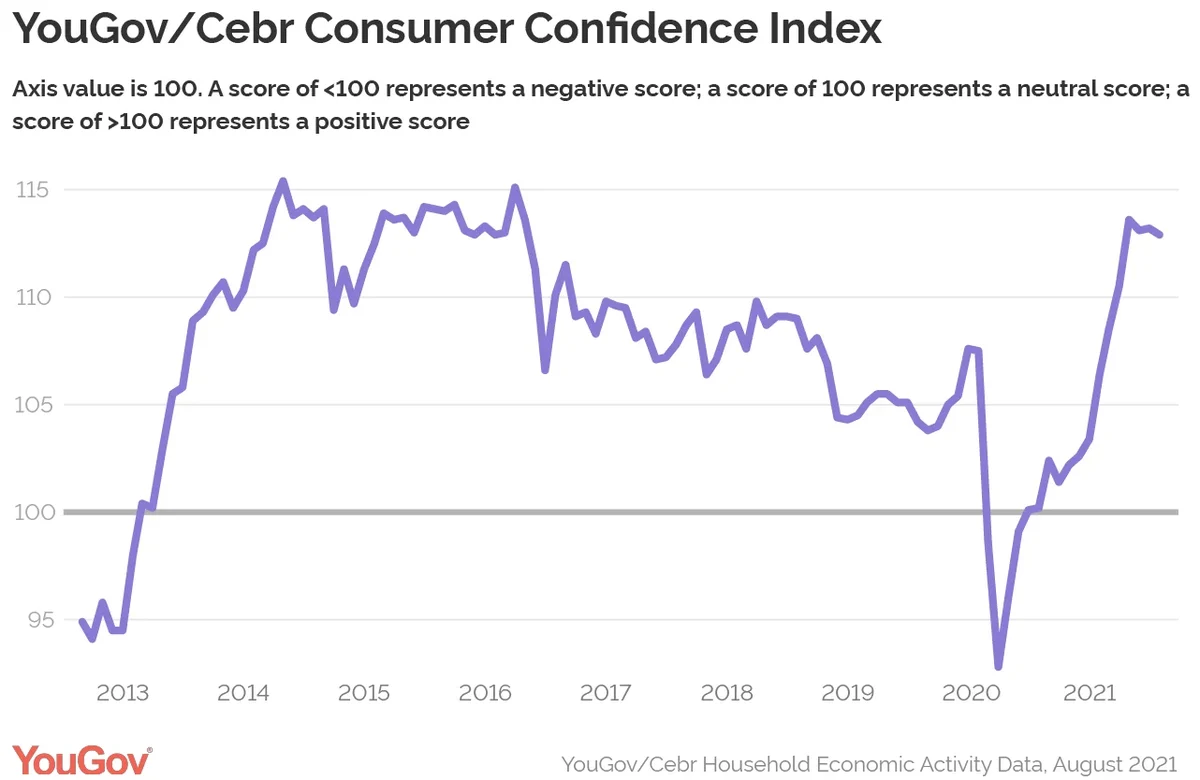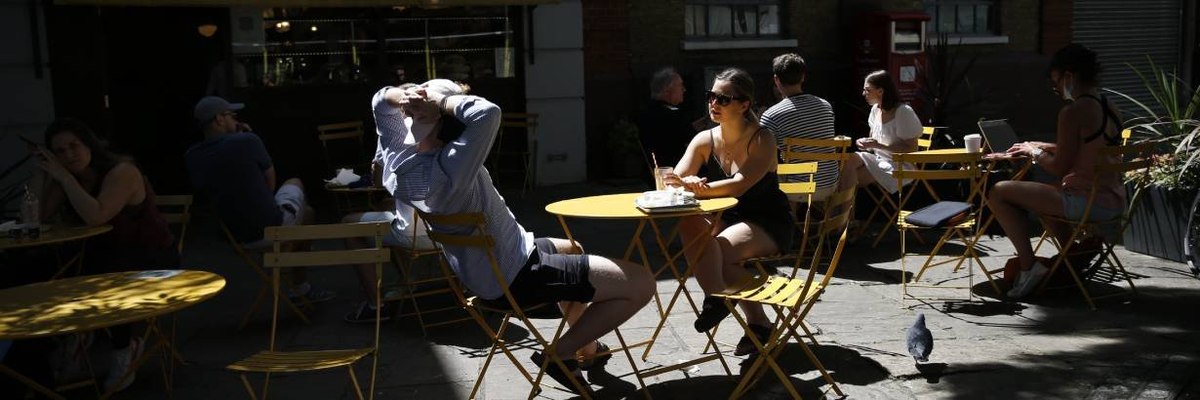- Consumer confidence falls by 0.3 points to 112.9
- Homeowners felt less confident in the past 30 days but remain very positive
- Workers feel job security has worsened, with the measure falling by 1.6 points
- Business activity shows small signs of improvement, with workers reporting their workplace becoming busier
Consumer confidence decreases marginally but is still on a high with all of the UK now largely free of coronavirus restrictions, according to the latest analysis from YouGov and the Centre for Economics and Business Research (Cebr).
The index fell by 0.3 points to 112.9 in August. Any score above 100 means more consumers are confident than not. Falling optimism about house prices and job security prompted the slight fall.
YouGov collects consumer confidence data every day, conducting over 6,000 interviews a month. Respondents answer questions about household finances, property prices, job security and business activity, both over the past 30 days and looking ahead to the next 12 months.

The largest fall in the underlying measures was in retrospective home value, with more homeowners than the month before believing their property decreased in value in the prior 30 days. The 2.6 point fall comes despite house prices showing the second-largest rise in 15 years in August, likely with the end to the stamp duty cut dampening expectations. But at 125.3, the metric remains strong.
The drop in positive sentiment does not stretch to the outlook for property prices among homeowners. This measure is up by 0.5 points and is by far the best performing in the index at 132.7.
Job security took a hit in August, with the already struggling metric falling by 1.6 points to 91.5. This means that more workers than not felt their source of employment became less secure in the preceding 30 days. These figures come as the UK struggles with its worst labour shortages since the 90s, with food firms even begging government to let them employ prisoners.
While the expectations among workers for the next 12 months are more positive at 118, they fell by 0.6 in August.
Households are more likely to report their finances improving in August than in the previous month, with the metric rising by 0.5 points to 95.1. This comes as retailers report the largest surge in spending in nearly seven years, with orders hitting a new high. Stock fell to the lowest levels on record too however, pushing up prices, according to Reuters.
The outlook among consumers for the next year worsened somewhat in August, falling by 0.3 to 101.5, but just about remains positive. Many UK consumers will face energy bill hikes in October, while the weekly £20 Universal Credit top up will be phased out this autumn.
Business activity is the only metric that is positive all around, with more workers reporting improvement in activity at their workplace in the last month than previously, bringing the metric to 112.2 (+0.7). The outlook for the next year has picked up too, showing an improvement of 0.9 points (126.8).
Kay Neufeld, Head of Forecasting and Thought Leadership at the Centre for Economics and Business Research, said:
“The August reading of the Consumer Confidence Index provides another mixed bag, confirming our view that consumer sentiment has topped out. Despite the small downtick in confidence, it should be noted that the index remains close to multi-year highs. Looking at the individual components, we see that business activity recorded increases in both the forward- and backwards-looking metrics, which is an encouraging sign against the backdrop of the near standstill in July’s GDP growth. Consumers have become gloomier about their financial situation in a year’s time which can be explained by the recent uptick in inflationary pressures. These are expected to further intensify in coming months.
Overall, the latest reading of the Consumer Confidence Index suggests that the UK economic recovery is still underway, though headwinds are emerging as the initial boost from lifting lockdown restrictions starts to wear off.“











